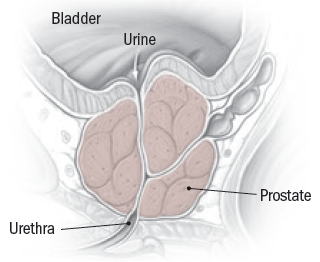
Trying to lose weight? Be careful not to lose muscle

Is your skin problem actually an autoimmune condition?

People with diabetes face higher risk of hearing loss

Antibiotic-free fixes for recurrent UTIs

Musculoskeletal syndrome of menopause: When menopause makes you ache all over

When can older women stop getting mammograms?

To lose weight, especially harmful belly fat, combine diet and exercise

Can men hold off on treating recurring prostate cancer?

The 7 types of rest and why we need them all

What are the early warning signs of cervical cancer?
Bladder & Bowel Archive
Articles
You don't say? Can your bladder burst from "holding it" too long?
While men sometimes hold off urinating until absolutely necessary, waiting too long won't cause serious damage to their bladder. Still, over time, the practice could possibly raise the risk for urinary tract infections and make urinating difficult.
What can I do about urinary dribbling?
Dripping urine after going to the bathroom is common as men age, but a simple "milking" technique can help prevent this.
What can I do about my "dribbling"?
Men can avoid "dribbling" (leakage of urine after using the bathroom) by manually pushing out remaining urine from their urethra and doing exercises to strengthen weak pelvic floor muscles.
New medication for urinary tract infections: Will it really help?
In 2024, the FDA approved the sale of pivmecillinam (Pivya), an antibiotic to treat urinary tract infections (UTIs) in women. When the drug becomes available in 2025, it will join the lineup of existing first-line antibiotic treatments for UTIs, such as trimethoprim/sulfamethoxazole (Bactrim) and nitrofurantoin (Macrobid). Doctors say having another treatment option on the same tier will be helpful, since some germs that cause UTIs have become resistant to existing antibiotics.

Trying to lose weight? Be careful not to lose muscle

Is your skin problem actually an autoimmune condition?

People with diabetes face higher risk of hearing loss

Antibiotic-free fixes for recurrent UTIs

Musculoskeletal syndrome of menopause: When menopause makes you ache all over

When can older women stop getting mammograms?

To lose weight, especially harmful belly fat, combine diet and exercise

Can men hold off on treating recurring prostate cancer?

The 7 types of rest and why we need them all

What are the early warning signs of cervical cancer?
Free Healthbeat Signup
Get the latest in health news delivered to your inbox!
Sign Up









